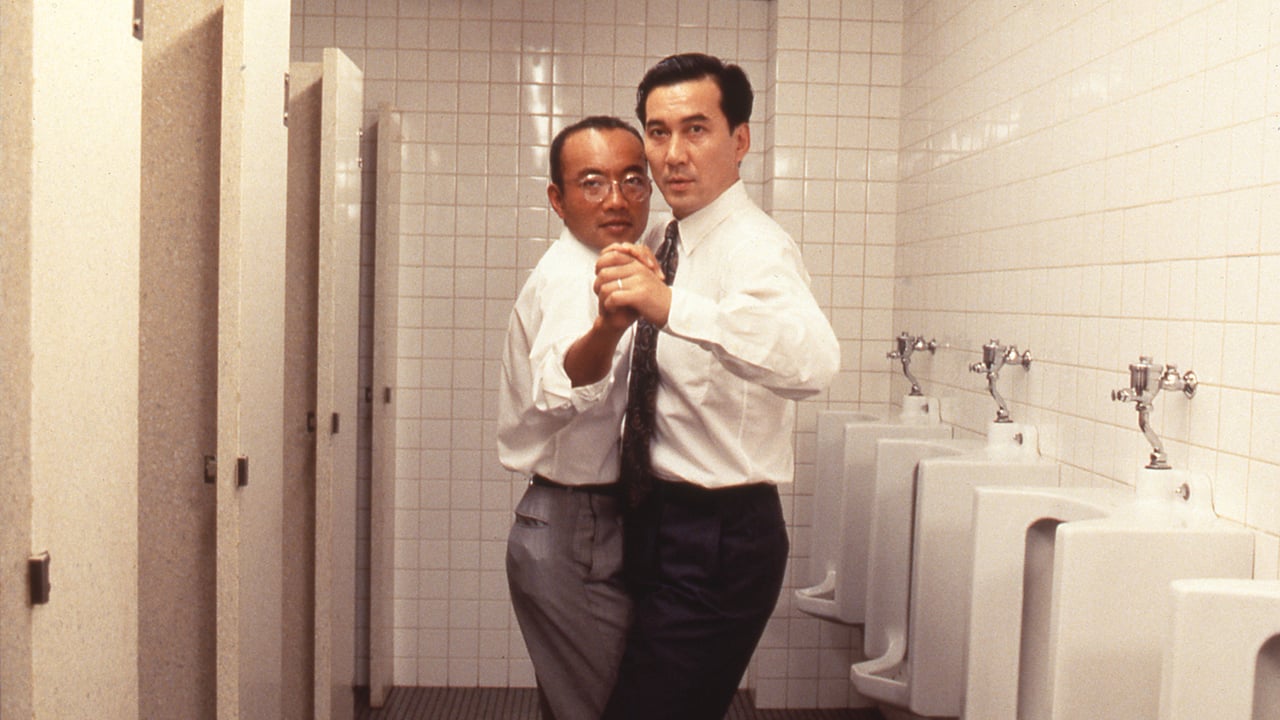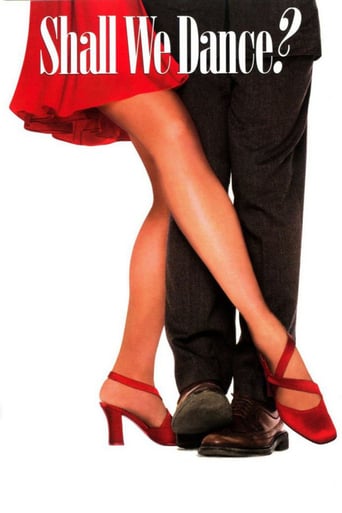



Lack of good storyline.
A brilliant film that helped define a genre
It's a good bad... and worth a popcorn matinée. While it's easy to lament what could have been...
View MoreThe best films of this genre always show a path and provide a takeaway for being a better person.
View MoreShohei Sugiyama (Kôji Yakusho) is a guy that works way too much. I understand that is typical in Japan. He is lonely, but that is not what attracts him to a dance studio.On the train home, he sees Mai Kishikawa (Tamiyo Kusakari) in the window. The next night she is there again. He is intrigued as to why she is so unhappy.He manages to overcome his shyness and joins in at the dance studio where Mai works as a teacher. Soon his life changes dramatically.Kôji Yakusho is an outstanding Japanese actor who was in Babel and 13 Assassins. Tamiyo Kusakari won a Best Actress award for this film and was up for another at this years Japanese Film Academy for The Terminal Trust.Comic moments are provided by Hiromasa Taguchi and Yu Tokui, and a very big surprise comes from Naoto Takenaka, who won a Best Supporting Actor award for this film.I cannot comprehend why anyone would think this film needed a remake.
View MoreShall We Dance? (Japan, 1996) opens to the tune of the same title, from the Rodgers & Hammerstein musical and movie, The King and I. We are in a ballroom of the Blackpool Tower, England, home to a complex of buildings that host the most prestigious of international ballroom dancing competitions. A Japanese narrator draws a contrast to his own country:"In Japan, ballroom dance is regarded with much suspicion. In a country where married couples don't go out arm in arm, much less say, 'I love you' out loud, intuitive understanding is everything. The idea that a husband and wife should embrace and dance in front of others is beyond embarrassing. However, to go out dancing with someone else would be misunderstood and prove more shameful. Nonetheless, even for Japanese people, there is a secret wonder about the joys that dance can bring."Here and there, the wonder has been inspired by Yul Brynner and Deborah Kerr from the Rodgers & Hammerstein film production. Other adventurous Japanese, by whatever means, have likewise been drawn to the ballroom dance floor. For Mr. Sugiyama, a middle-aged accountant with a wife and daughter, it begins at a commuter train stop where he spies a young woman looking out the upper-story window of the Kishikawa School of Dancing, and is captivated. This leads to lessons.Koji Yakusho is exceptional in the lead acting role. Tamiyo Kusakari plays the young woman from the window, who turns out to be a professional with aspirations to return to Blackpool. Reiko Kusamura is excellent as the very patient, somewhat older woman who ends up as the instructor of Mr. Sugiyama and his two nearly as clumsy male classmates.This is one of the all-time bests from among Japanese movies, particularly those of the non-samurai genre. Richard Gere starred in an Americanized version in 2004, but the Japanese original scores higher with IMDb ratings voters. If it suits your fancy, explore also the very funny Australian comedy-romance, Strictly Ballroom (1992).
View MoreA middle-aged man keeps seeing the same lady at a dance studio across from the train tracks where he commutes to and from work. She's rather pretty, but there is something else about her that gets his attention. One day, drawn by his curiosity, he stumbles (literally) into the dance studio and reluctantly signs up for classes--not realizing he'll become hooked.This is a very unusual film that deals with a very mundane subject so well that I felt sucked into the film and really cared about the people--even though it is just about ballroom dancing. I am not a dancer and frankly I avoided this film because it just sounded so dull. The plot is simple--so simple you wonder how the film could be this good. Of course there's more to it than that, but not a lot. But the wonderful mood and the great writing made me really care about the people so much that I found myself cheering them on or laughing many times during the film. I particularly loved Mr. Aoki--the guy with the crazy wig and very outrageous dance style--though I really found myself caring about them all (even the nasty pudgy lady). Any film that pulls so much out of such a simple setting is a terrific film and well worth your time.
View MoreShall We Dansu? is a very non-Hollywood take, but it does fit in with it's predecessors - "Roseland" (which spotlighted my college roommate's mother for 4 whole minutes as a Roseland devotee), "Queen of the Stardust Ballroom" and "Strictly Ballroom." In more conventional movies the klutzy dance learners are really Broadway dancers who miraculously learn and become dazzling. Here I think even the "instructors" were actors and there's no dazzle. Odder, the music sounds like it's out of a karaoke machine, like Japanese re-interpretations of Western pop music, which I think is the theme of the Japanese taking on this Western hobby as well. A bit is lost in our ignorance of Japanese culture and mores though the narrator fills us in a bit. (There's a great line where a contestant in the dance competition is disqualified after he interrupts another's routine. "Ungentlemanly behavior - this is a British sport after all.")It's such a relief when the soundtrack suddenly breaks out in "Save the Last Dance For Me" before it goes back to the slightly off-rhythm, slightly off in some way music. The dancers weren't dancing to the music either - they rehearse without music.Regardless, it's a wonderful movie and only music fans would complain . I cried at several scenes. It's quite unpredictable in its comedy and touching in very unexpected ways. The audience clapped at the end. It's very annoying that the credits aren't translated except for a few leads. Stay thru the credits, though, as the dancing continues.(originally written 7/23/1997)
View More